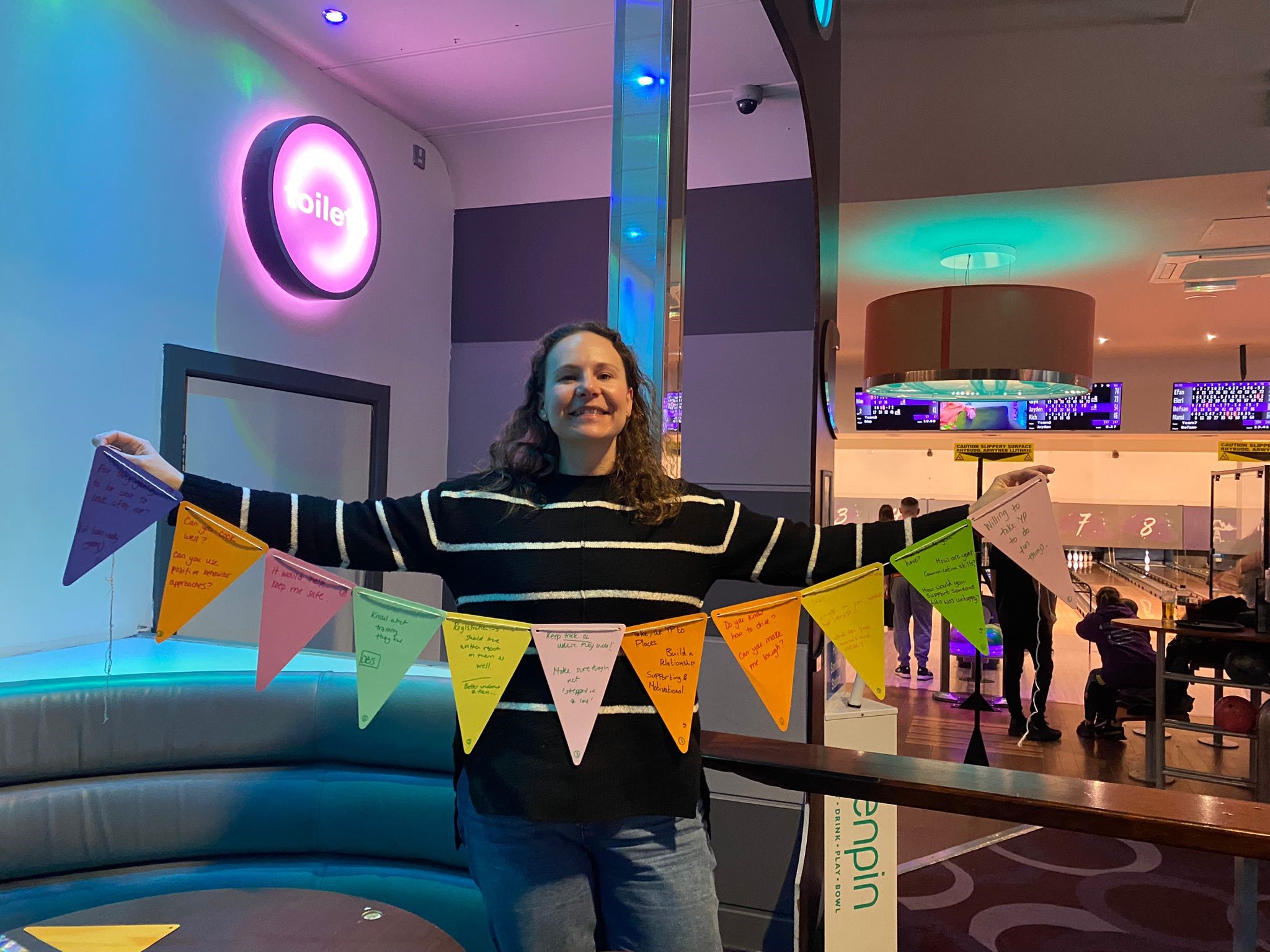-
Involvement Blog May 23
Our Involvement Board is CASCADE’s strategic lived experience governance board. The boards’ main function is to hold us accountable, provide scrutiny, identify areas for improvement, and strengthen our relationships with our public, professional, and funding stakeholders. The board was originally set up to provide strategic governance for our ‘Public Involvement team’ only, but we are… Read More
-
Parents Influencing Policy
Previously, a parent from our group had also given evidence with Dr Louise Roberts on their journey as a care experienced parent at a Petitions Committee review meeting. So, on Wednesday 12th July, everyone who had contributed to the reviews were invited to attend the plenary debate for the reports in the Senedd building in… Read More
-
Welcome Elaine
My name is Elaine and I started at CASCADE right at the end of March. My role is to support the involvement of people with experience of accessing social care services in research. I will do this through working with young people and parents. The groups advise on different stages of research, to make sure… Read More
-
The 4C’s
Young people felt that carers should know what a young person has been dealing with along with their likes and dislikes and how to care and communicate with young people. They felt that carers should be kind, happy and motivational. When it came to what carers should do, there were a wide range of thoughts… Read More
-
Key messages
We’ve made lots of progress sharing the charter across Wales and wider, some of the highlights include: Key Messages Project In this new part of the project, started in January 2022, we have partnered with Voices From Care Cymru, NYAS Project Unity and Ohana group from Hertfordshire LA. We set out to create some illustrated… Read More
-
Making sense of increasing young carer prevalence – cause for concern or finding the hidden population?
Wednesday March 15th is Young Carers Action Day 2023, an annual event that draws attention to the lives of children who care for a family member due to an illness or disability. Research has a key role in investigating the impacts of caring and informing what support could look like, but the issue of increasing prevalence estimates is challenging our understanding.
-
How Parental Advocacy can help improve relationships between parents and social workers
A new way of working together could prove transformational according to The Independent Review of Children’s Social Care, which recommended that all families involved with child protection should be offered Peer Parental Advocacy (PPA)
-
TRIUMPH Fest
‘TRIUMPH Fest’ in Edinburgh was designed as an opportunity to bring together young people, policymakers and researchers to share learning about young people’s mental health. It was a two-day event designed and led by the TRIUMPH Youth Advisory Group. It involved presentations and stalls highlighting the work that young people have been doing, opportunities for lively discussions and workshops to develop young people’s research and skills in activism.
-
Reach for the stars: Care experienced role models
As part of our CASCADE Parents group and network we have offered the opportunity for members to contribute to blogs if they would like to. These will be stories, messages, or priorities for research from their perspective. We hope this will be a regular blog feature at CASCADE and another way for us to amplify the voices of those with lived experience of children’s social care.
-
The Journey so far as a peer researcher – participation
I am one of the founding members of the Family Advisory Board (FAB group), in Camden in 2014 and became the coordinator for the FAB group recently, a lay member of the Camden Safeguarding Children Partnership, and a trained Parent Advocate for Child Protection Conference. I am also a Relational Activist and actively promote Family Group Conferences, Parent Advocacy, Parent Participation, and use my experience through relationship and working collectively with others to achieve social change.
Welcome to CASCADE
Children’s Social Care Research and Development Centre










